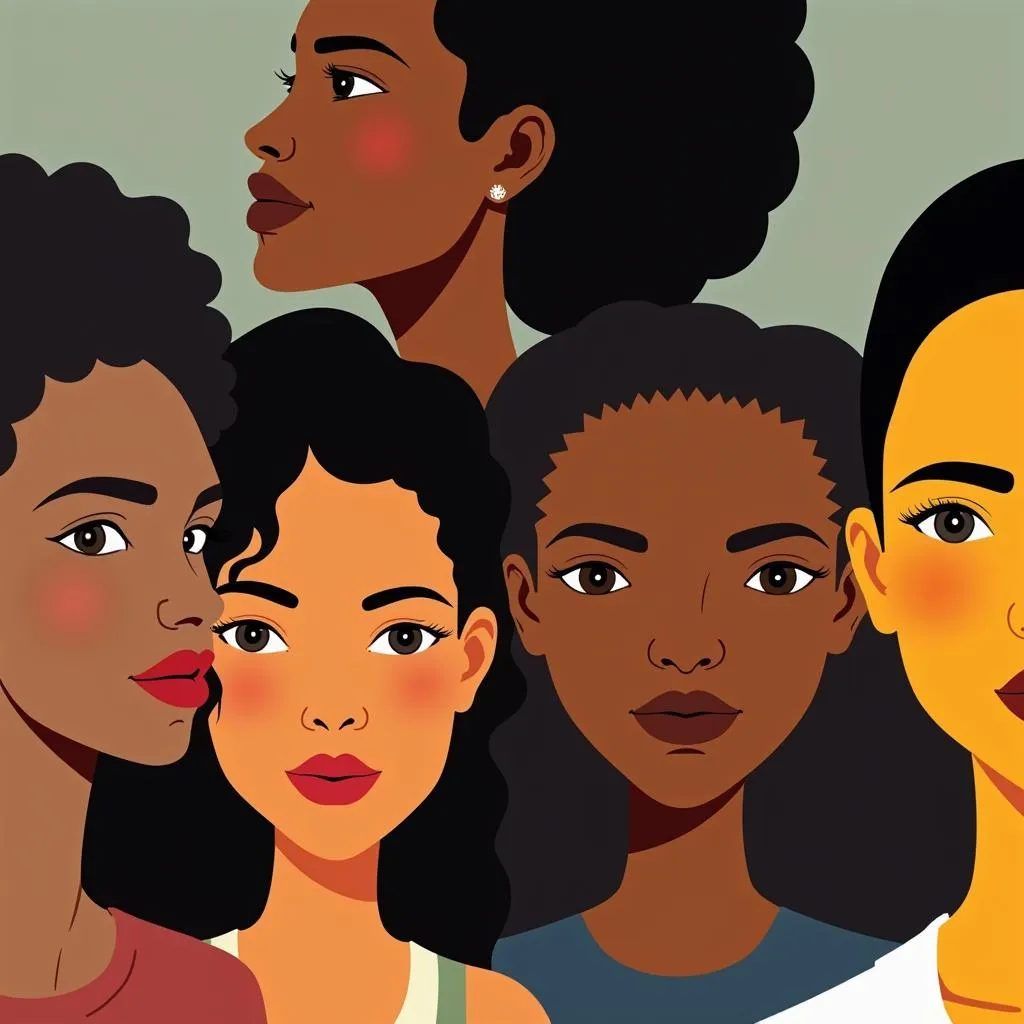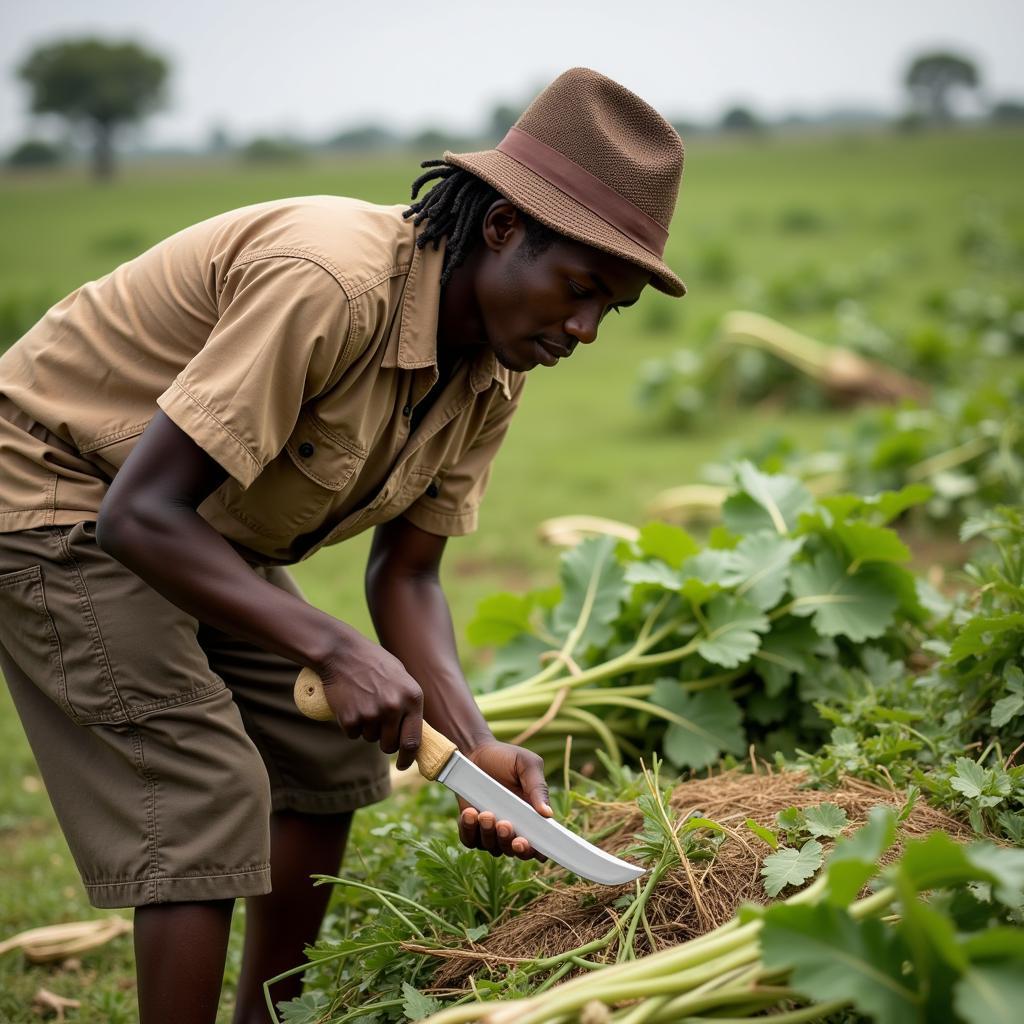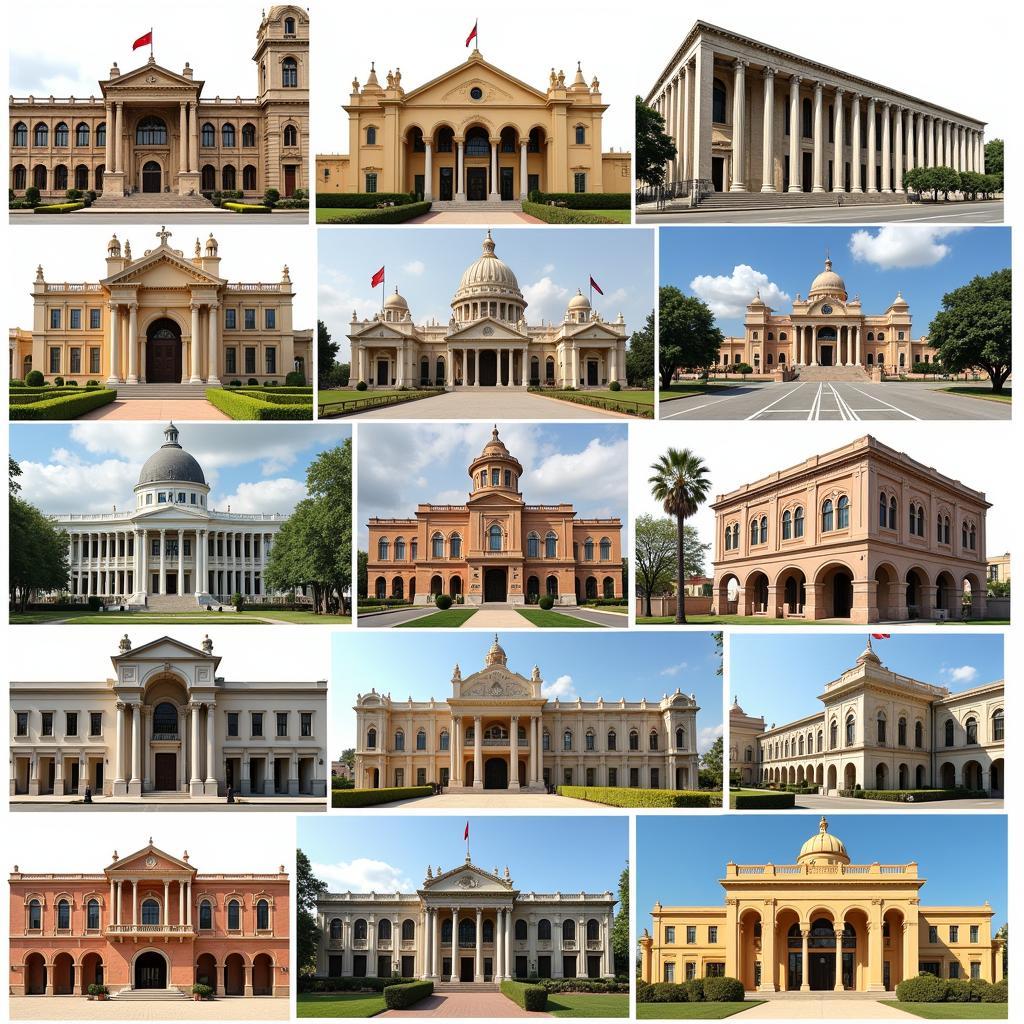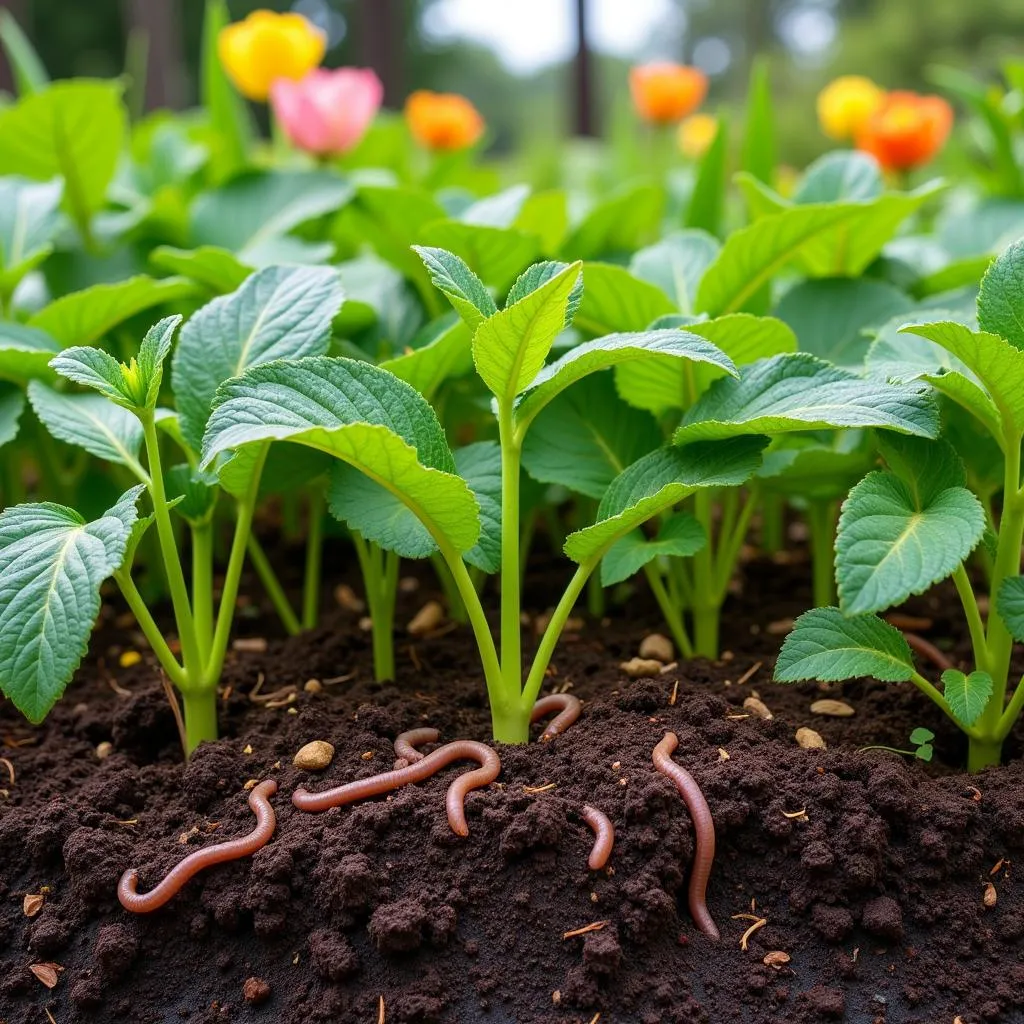Unveiling the Majesty: An Exploration of the African Beast
The term “African Beast” often conjures up images of powerful creatures roaming the savannas and forests. This exploration delves into the captivating world of these magnificent animals, understanding their significance in African ecosystems and the cultural tapestry of the continent.
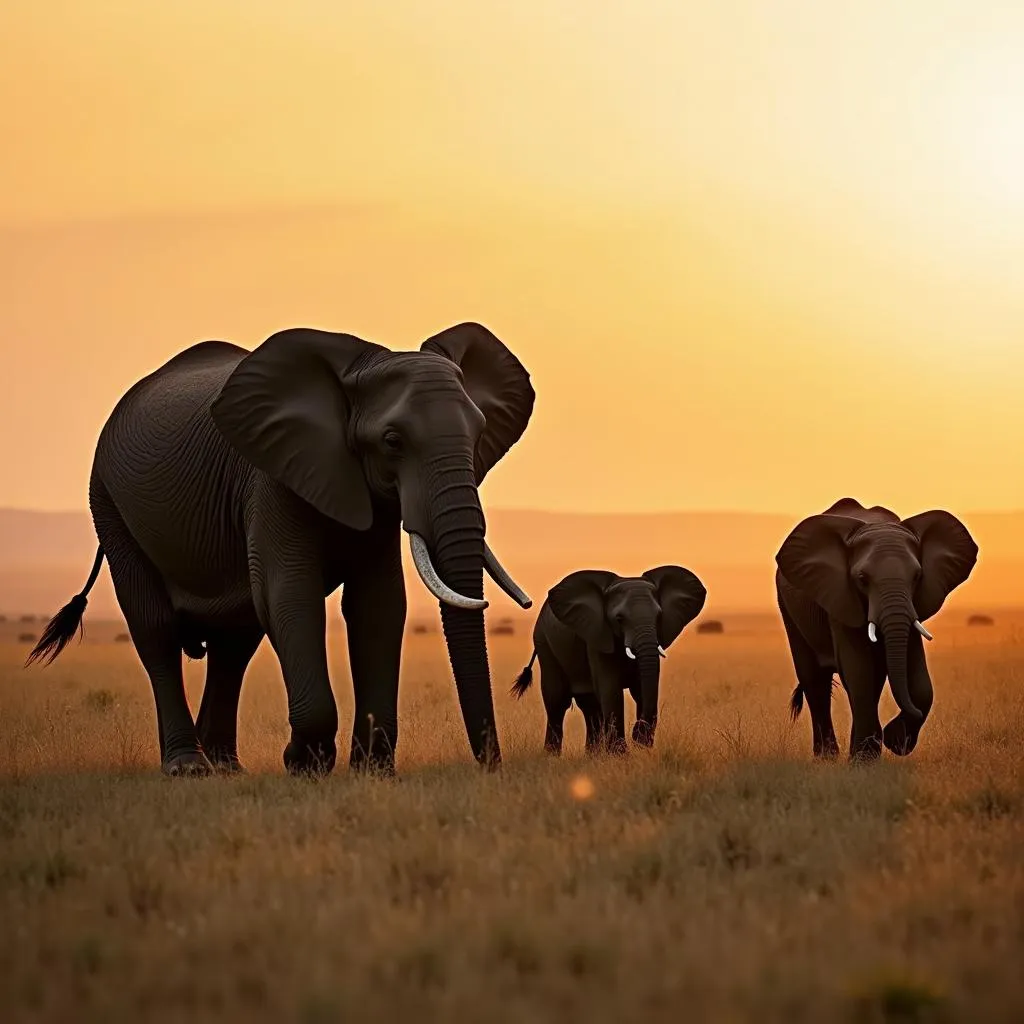 African Elephant Family
African Elephant Family
The Big Five: Icons of the African Wilderness
No conversation about African beasts is complete without mentioning the “Big Five.” This iconic group, comprising the African lion, African elephant, Cape buffalo, African leopard, and rhinoceros, has captivated the imagination of explorers and wildlife enthusiasts for centuries. They represent the pinnacle of Africa’s awe-inspiring megafauna and are a testament to the continent’s rich biodiversity.
The Lion: Majestic King of the Savanna
Often called the “king of the jungle,” the African lion reigns supreme on the savannas. Their powerful roars echo across the plains, a symbol of their dominance in the animal kingdom. Lions are social animals, living in prides and showcasing fascinating hunting strategies and family dynamics.
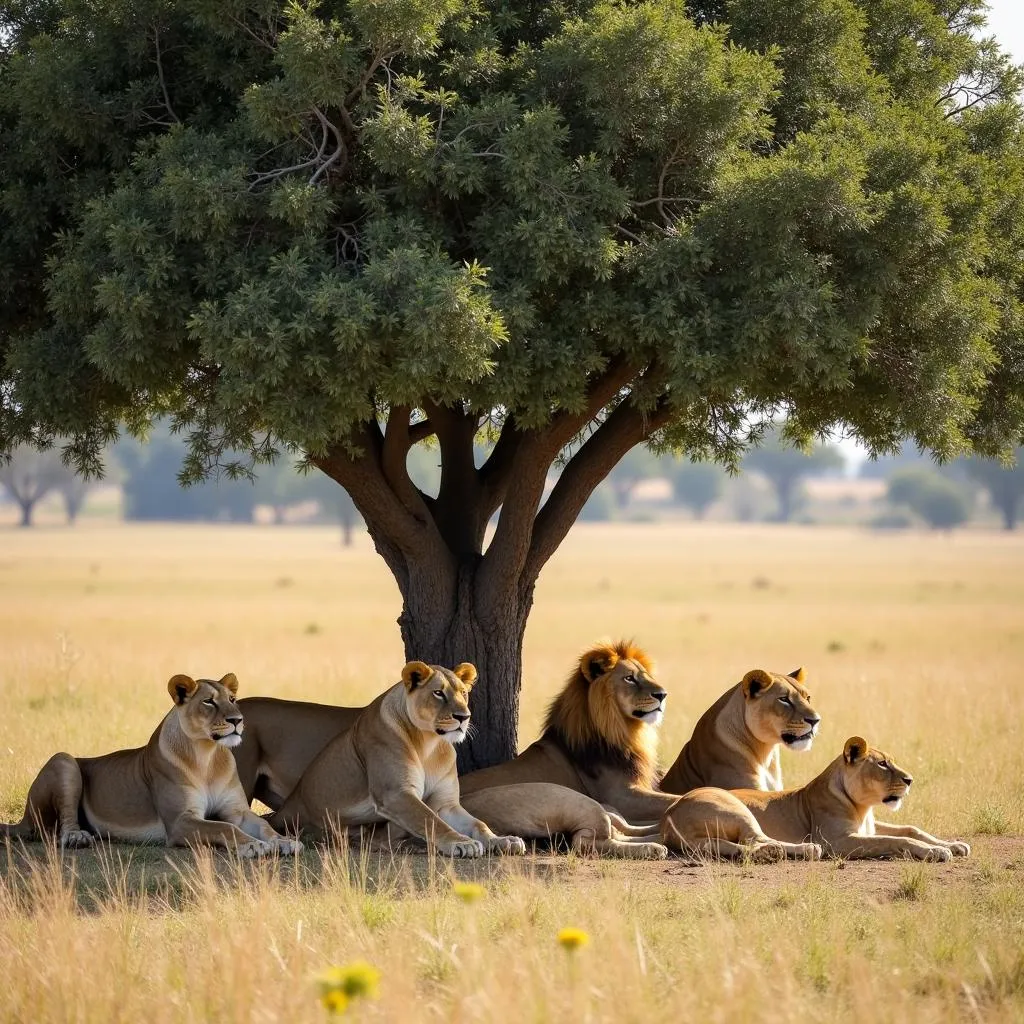 Lion Pride Resting in Shade
Lion Pride Resting in Shade
The Elephant: Gentle Giants with Ancient Wisdom
African elephants, the largest land animals on Earth, command respect with their sheer size and intelligence. They are matriarchal societies, with the eldest and wisest female leading the herd. These gentle giants play a crucial role in shaping their environment, creating clearings and digging waterholes that benefit other animals.
The Cape Buffalo: Strength in Numbers
Cape buffalos, also known as African buffalos, are formidable creatures known for their unpredictable nature and strong herd instinct. They roam the savannas in large herds, their massive horns and robust builds making them a force to be reckoned with.
The Leopard: Masters of Stealth and Agility
The elusive African leopard, a master of camouflage and stealth, is a highly adaptable predator. They are solitary creatures, perfectly adapted for hunting in a variety of habitats, from dense forests to open grasslands.
The Rhinoceros: Armored Giants on the Brink
Sadly, the iconic rhinoceros, with its distinctive horns, faces a precarious future due to poaching and habitat loss. These armored giants play a vital role in their ecosystem as grazers, shaping the landscape and influencing plant diversity.
Beyond the Big Five: Unveiling Africa’s Hidden Gems
While the Big Five may steal the spotlight, Africa is teeming with a diverse array of fascinating creatures, each playing a crucial role in their ecosystem.
The African Wild Dog: Painted Hunters of the Plains
African wild dogs, with their striking mottled coats and incredible stamina, are highly social animals that hunt in packs. Their cooperative hunting strategies and strong social bonds make them a force to be reckoned with on the African plains.
The Cheetah: Speedsters of the Savanna
Known for their incredible speed, cheetahs are the fastest land animals on Earth. Their slender bodies and long legs are perfectly adapted for chasing down prey across the open savannas.
The Giraffe: Towering Herbivores with a Unique Perspective
Giraffes, the tallest mammals on Earth, are instantly recognizable by their long necks and patterned coats. They browse on the leaves of tall trees, their height giving them access to a food source unavailable to most other herbivores.
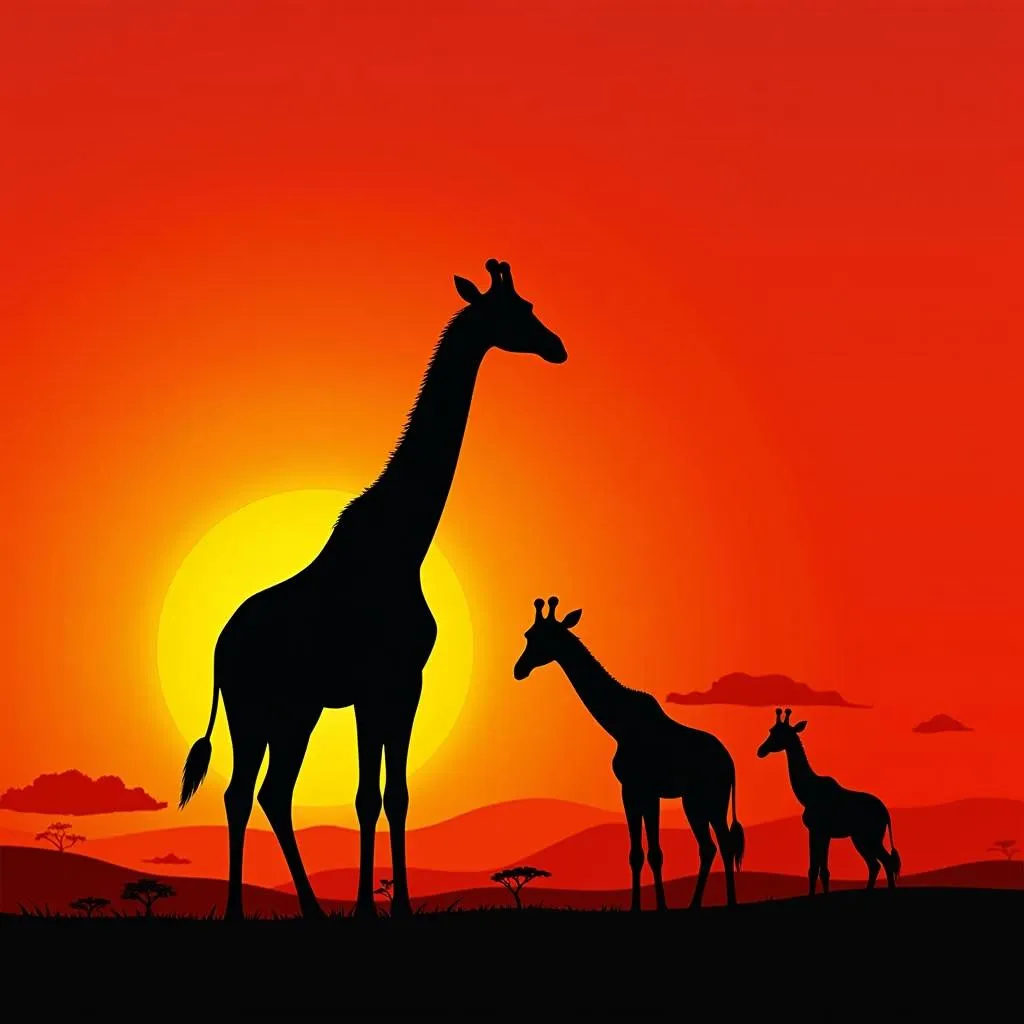 Giraffe Family at Sunset
Giraffe Family at Sunset
The African Beast: An Integral Part of the Cultural Landscape
The animals of Africa are not just biological wonders; they are deeply woven into the cultural fabric of the continent. For centuries, they have been a source of inspiration for art, music, folklore, and traditional beliefs.
African Beast in Art and Symbolism
From ancient rock paintings to contemporary sculptures, African beasts have been a constant presence in African art. They often symbolize strength, power, wisdom, or even the spirits of ancestors.
The Role of Animals in Folklore and Mythology
Animals feature prominently in African folklore and mythology, often serving as tricksters, guardians, or messengers between the human and spirit worlds. These stories often convey moral lessons or explain natural phenomena.
Conclusion: Preserving the Legacy of the African Beast
The term “African beast” encompasses a world of wonder, diversity, and ecological significance. These creatures, from the iconic Big Five to the lesser-known but equally fascinating species, are integral to the balance of African ecosystems.
As we marvel at the majesty of the African beast, it is crucial to recognize the threats they face due to habitat loss, poaching, and climate change. Conservation efforts are critical to ensure that these magnificent creatures continue to roam the African wilderness for generations to come.
FAQs about African Beasts:
What are the Big Five animals in Africa?
The Big Five are the African lion, African elephant, Cape buffalo, African leopard, and rhinoceros.
Why are they called the Big Five?
The term “Big Five” originated from big game hunting, referring to the five most difficult and dangerous animals to hunt on foot.
What is the largest land animal in Africa?
The African bush elephant is the largest land animal in Africa, and indeed, the world.
What is the fastest land animal in Africa?
The cheetah, capable of reaching speeds of over 70 miles per hour, is the fastest land animal in Africa.
Are there jaguars in Africa?
No, jaguars are native to the Americas. The term “African jaguar” is sometimes used colloquially to refer to the leopard, but they are distinct species. You can read more about the differences on african jaguar.
Is the African wild dog a type of dog?
While they are called wild dogs, they are not directly related to domestic dogs. They belong to a distinct canid species known as Lycaon pictus.
What are some of the threats facing African beasts?
Habitat loss, poaching, human-wildlife conflict, and climate change are some of the major threats facing African wildlife.
How can I help in the conservation of African beasts?
You can support conservation organizations working in Africa, raise awareness about wildlife conservation, and make responsible choices as a traveler or consumer.
Other Resources:
- Learn more about the efforts to conserve the african buffalo africa.
- Discover the fascinating world of extinct creatures with insights into african dinosaur cryptids.
- Explore the history and cultural significance of african beast replica in art.
Need more information about African wildlife and conservation? Do you have questions about specific animals or conservation initiatives?
Contact us:
- Phone: +255768904061
- Email: [email protected]
- Address: Mbarali DC Mawindi, Kangaga, Tanzania.
Our team is available 24/7 to assist you. Let’s work together to protect the incredible biodiversity of Africa!
